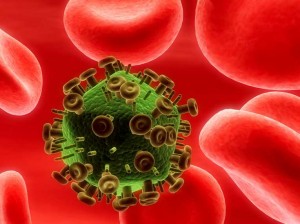Lifetime HIV Vaccine?
“This may be our best hope for controlling the HIV pandemic.” -Dr. Marie-Claire Gauduin
Researchers at the Texas Biomedical Research Institute have applied for a patent for a one-time administered vaccine they believe will provide a lifetime’s worth of protection against the most commonly transmitted form of HIV.
The vaccine is genetically engineered, and enables the continuous production of disease fighting cells that will last a lifetime without being destroyed by the immune system. It’s important to note that this is a step towards prevention, not a cure, though huge steps towards a cure were made earlier this year.
Aids Prevention
The vaccine is administered just below the surface of the skin, which will protect it’s recipients against 90% of reported cases of HIV. This is normally the first site of contact for the virus, and thus the most crucial to protect.
“The skin is the body’s first line of defense and, if we can prevent the virus from entering the body through the skin, we can stop it before it has a chance to mutate.”
90% of aids transmission is through sexual intercourse, and that is exactly what this patent targets. This method will not protect against the other 10% of cases, which includes tainted blood transfusions or needles.
There’s still a number of hurdles ahead including patent acceptance, human trials and FDA approval, but it’s a very promising development nonetheless.
Texas Biomedical Research Institute
Comments
Tags: aids prevention, aids vaccine, hiv prevention, hiv vaccine, lifetime aids vaccine, lifetime hiv vaccine
Trackback from your site.


Comments (4)
Observer
| #
Intriguing but…how do you test this? Who will volunteer to be immunized and then exposed sexually to aids? And if you just get immunized and don’t ever get aids, is it because you were never exposed or due to the vaccine? My brain hurts. Now a lifetime of indestructible disease fighting cells, that is likely testable and worth a shot.
Reply
Michael M
| #
How they do these kinds of studies is that they recruit a large pool of volunteers (generally more than 100,000), randomly give half of them the real vaccine and half of them a placebo, and then wait several years. In the natural course of human events, some of these volunteers will get HIV. If substantially fewer people in the vaccinated group get HIV than in the unvaccinated group, then we know that the vaccine works.
This explains, in part, why vaccine development is such an expensive process and why it takes so long to get a new vaccine approved. It is necessary to enroll and track hundreds of thousands of volunteers, from many different locations, socioeconomic classes, etc., and to follow them all for a period of several years, until a sufficient number have acquired HIV to provide a valid statistical comparison between the two groups.
Reply
Taylor
| #
It would be a lot nicer too if the damn FDA didn’t take so long to approve of medically significant technologies. I think a poster child for this may be diabetic technologies unnecessarily delayed by the FDA.
Reply
jual trainer plc
| #
i really agree with you taylor
Reply